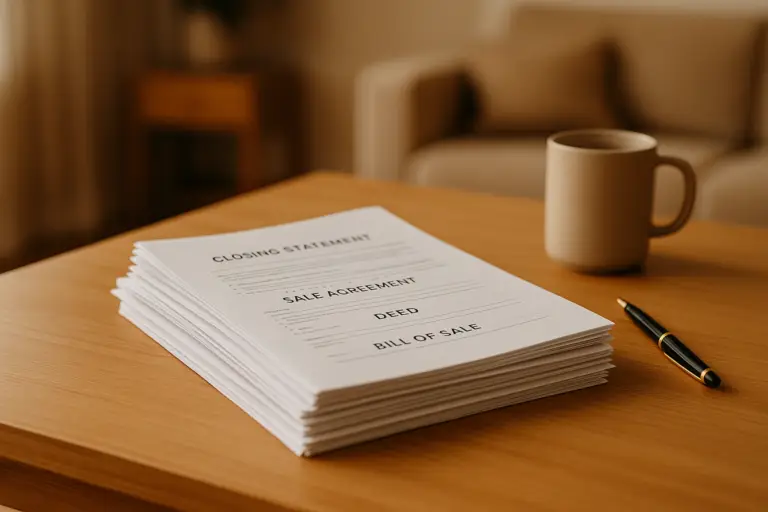When you sell a home, keeping specific documents is essential for tax purposes, legal protection, and future reference. Here's your complete guide to the key documents you should retain.
8 Key Documents You Should Retain:
- Closing Disclosure Statement: A detailed breakdown of all financial aspects of the sale, crucial for taxes and potential disputes.
- Deed of Sale: Confirms the transfer of ownership and protects against future disputes or fraud.
- Final Mortgage Payoff Statement: Proof that your mortgage is fully paid off, including any accrued interest and fees.
- Seller's Disclosure Form: Outlines the property's condition at the time of sale, ensuring transparency and legal compliance.
- IRS Form 1099-S: Reports the sale's proceeds to the IRS, required for tax filing even if no taxes are owed.
- Property Tax Records: Proof of taxes paid, essential for audits or disputes with local authorities.
- HOA Documents (if applicable): Includes meeting minutes, fee payment records, and resale packages for compliance and dispute resolution.
- Home Warranty and Service Records: Covers warranties and maintenance history, useful for the new owner and potential claims.
Quick Tips for Storage:
- Physical copies: Use a fireproof safe for originals.
- Digital backups: Scan and store securely in the cloud with encryption.
How Long To Keep Documents After Selling A House?
1. Closing Disclosure Statement
The Closing Disclosure Statement is like the financial roadmap of your home sale. This document meticulously outlines every dollar involved in the transaction, serving as your official receipt [3].
It lays out the final terms of your mortgage agreement, including the loan amount, interest rate, and monthly payment details [5]. It also breaks down all the charges negotiated during the process, such as fees, taxes, and escrow payments [4]. This detailed summary not only clarifies what you ow











